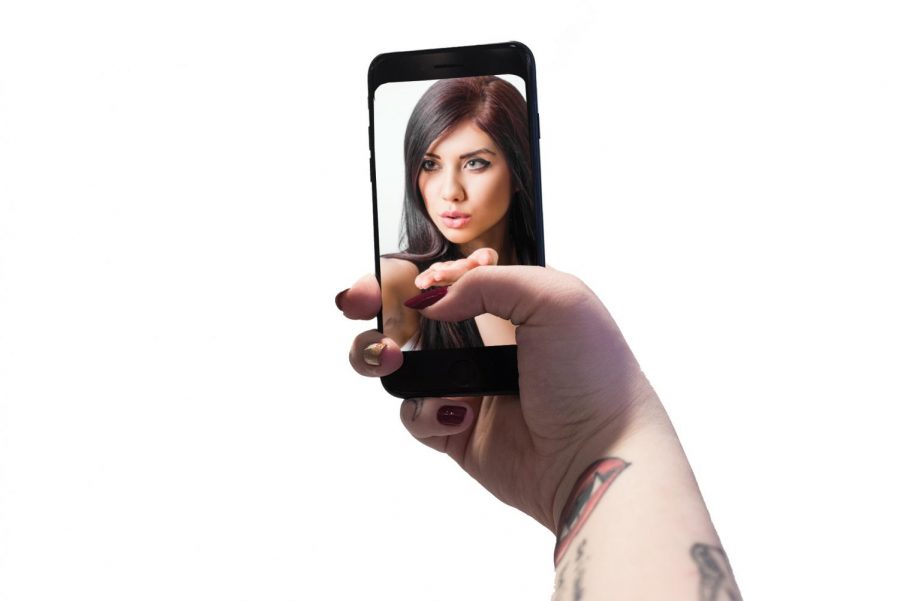To post or not to post: The double standards of social media nudes
zoes hand
February 13, 2017
Have you ever had one of those days when you felt confident and flawless strutting around the house in underwear? You might even take a stripped-down selfie, but then the anxiety sets in: Should you post it and if you do, what kind of comments are you likely to get?
Although some women can wear underwear and pose topless for selfies without incurring criticism, many still suffer from a double standard in society that denies them a broad range of acceptable attire and body types in their social media photos.
While attending a communications class at Loyola University, senior Madison Hoyer heard one of her classmates say that women only take selfies because they want to “whore out.” That inspired her to create the private Facebook group Selfie Whores.
The goal of Selfie Whores is to promote body positivity and empowerment and establish a positive space where everyone can be themselves, without Facebook users reporting them for showing their natural bodies. The group now has 2,000 members who post pictures of themselves, both clothed and nude, to promote confidence and female empowerment.
“If you are wearing a bathing suit and you can see any pubic hair, that photo can be flagged and removed,” Hoyer said. “Which is ridiculous because how many photos of guys—first of all without their shirt, and second of all with a ‘happy trail’ or something to that extent—where you see that stuff showing, [and] it is not an issue?”
Society should be accepting of each other’s bodies, according to Hoyer.
“It is our body, it’s natural, [so] there is absolutely no reason why [our photos] should be flagged for being too inappropriate,” Hoyer said.
What is socially acceptable for women and men to reveal in their photos is a source of considerable debate, says Olga Goldenberg, an assistant professor in Columbia’s Humanities, History & Social Sciences Department.
Comments on posts can either be empowering or harsh depending on the person writing them, Goldenberg said. People who are supportive will call the image empowering, while those who are opposed will see the photo as desperate.
“We have evolved in acceptance and expressions of our sexuality,” Goldenberg added. “Butwe haven’t evolved in double standards, that things are okay for men and not for women.”
The first step toward resolving the double standard is to recognize that there is a problem and then begin to talk about it with others, Goldenberg said.
Another option is to just ignore the negative comments and post what you want, as some millennials are doing.
Many young are beginning to feel more comfortable in their own bodies and are starting to post on social media whatever makes them feel confident, according to Madeline Lecompte, a sophomore advertising major at Columbia.
“You just have to take [the nasty and negative comments] with a grain of salt,” Lecompte said. “Imagine all of these celebrities that are putting themselves out there, and they are getting tons of backlash. Yeah, it does suck sometimes when someone calls you out for something, but you need to just brush it off and post even more, only if you feel comfortable doing that.”








